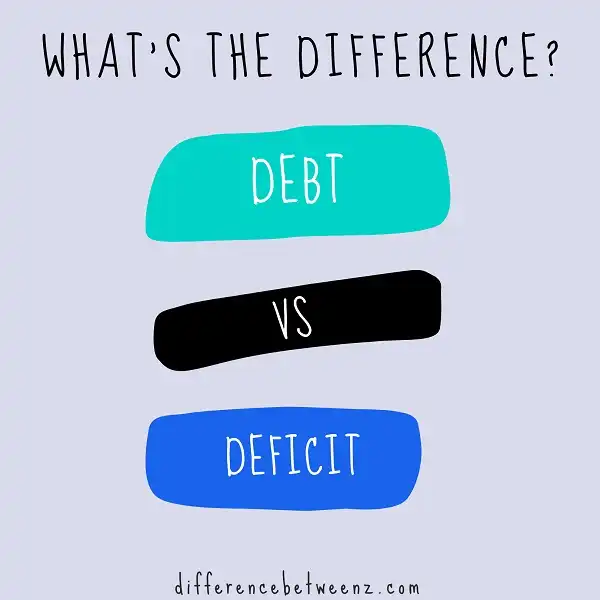The terms “debt” and “deficit” are often used interchangeably, but they actually have different meanings. A government’s debt is the total amount of money that it owes to its creditors. A deficit is an amount by which a government’s annual spending exceeds its annual revenue. In other words, the deficit is what causes a government’s debt to increase. It’s important to understand the difference between these two concepts because how a government deals with its debt and deficit can have a significant impact on the economy.
What is Debt?
Debt is money owed by one person or entity to another. It can be in the form of a loan, such as a mortgage or car loan, or it can be in the form of credit, such as a credit card balance. Debt can also come in the form of bonds, which are essentially IOUs between businesses or between a business and the government. Whatever the form, debt represents an obligation to repay the borrowed funds, plus interest. There are both benefits and risks associated with debt. On the plus side, debt can be used to finance major purchases or investments that would otherwise be out of reach. It can also help businesses expand their operations and increase their profits. On the downside, debt can put a strain on your finances and may even lead to bankruptcy if you’re unable to make your payments. That’s why it’s important to understand all the terms and conditions of any debt agreement before you sign on the dotted line.
What is a Deficit?
A deficit is simply an excess of expenditure over revenue. The term is most commonly used in reference to government spending, but it can refer to any kind of entity that has income and expenses. When a government runs a deficit, it is said to be borrowing money to cover the gap. This borrowing typically takes the form of bonds, which are then sold to investors. Over time, the accumulated debt can become a burden, since it must be paid back with interest. For this reason, deficits are usually considered to be bad for an economy. However, there are times when a deficit may be necessary in order to stimulate growth. For example, during a recession, the government may need to increase spending in order to create jobs and reduce unemployment. Ultimately, whether or not a deficit is helpful or harmful depends on the circumstances.
Difference between Debt and Deficit
Debt and deficit are often used interchangeably, but they actually refer to two different things. Debt is the total amount of money that a government owes, while the deficit is the difference between what a government spends and what it takes in revenue. In other words, the deficit is the amount by which the government’s expenses exceed its income. deficits can be caused by a number of factors, including wars, natural disasters, or simply because the government is spending more money than it is bringing in through taxes and other sources of revenue. When a government runs a deficit, it has to borrow money to make up the difference, which increases its debt. So, while debt and deficit may seem like synonyms, they actually refer to two very different concepts.
Conclusion
The debt ceiling is a limit on the amount of money that the federal government can borrow to meet its existing obligations. The current debt ceiling is set at $19.8 trillion. The deficit, on the other hand, is simply the annual shortfall between what the government takes in and what it spends. It has nothing to do with the debt ceiling. In fact, if Congress does not raise the debt ceiling, it would still have to find ways to cover its expenses—it just couldn’t borrow any more money to do so.


